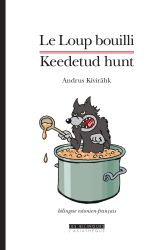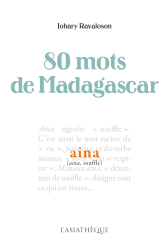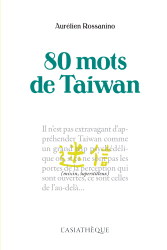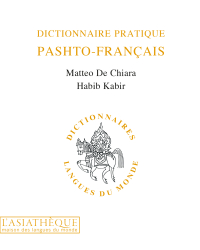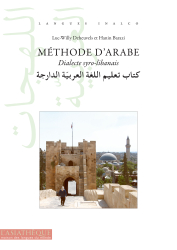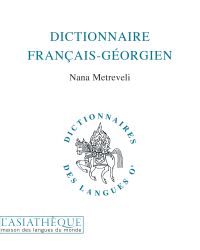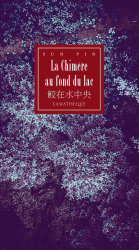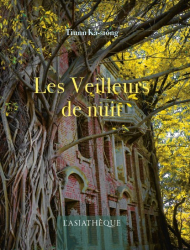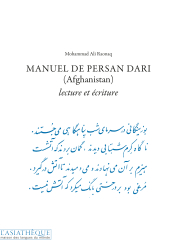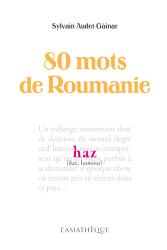Details
Format: Paperback
ISBN: 9782360573011
Collection: Empreintes chinoises
16 x 24 cm
Weight: 605 gr
Pages: 336
First publication: 24/08/2022
CLIL: 3353
BISAC: REL062000
Published with the support of:
- Fondation Chang Ching-kuo,
- Université Paris Nanterre,
- Unité mixte de recherche Chine, Corée, Japon de l’École des Hautes Études en Sciences sociales,
- Centre d’études himalayennes,
- Centre de recherche interuniversitaire Expérience ressources culturelles éducation
- Laboratoire d’ethnologie et de sociologie comparative,
- Programme « Vieux Maîtres et nouvelles générations de spécialistes religieux. Ethnographie du quotidien, anthropologie du changement social » (Shifu), financé par l’Agence nationale de la recherche.
Le Féminin et le Religieux
(The Feminine and the Religious)
""Le féminin et le religieux" (the feminine and the religious) is the expression used by Brigitte Baptandier in reference to the red thread that runs through her ethnological research on China since 1979 and crosses her questioning on the liturgical and shamanic traditions of Taoism. The title of this book, which we dedicate to her, was therefore quite appropriate, and it is this same red thread that the eight authors who contribute to paying homage to her have followed in order to explore further what the feminine and the religious held together can tell us not only about China of yesterday and today, but also, in a comparative perspective, about European and Indian traditions." (Excerpt from the Introduction)
This book, which brings together contributions from eight scholars in different fields, invites reflection on the complex and multiple links that connect the feminine and the religious. Family disorder, illness, suicide, pregnancy, infanticide, broken or thwarted designs, death, masculine and feminine creativity, begetting, rituals and the relationship to the afterlife are some of the themes that this book addresses through ethnography, history, literature, mythology and psychoanalysis. The different cases presented in this book question the ritual prohibitions in various religious contexts with regard to the conceptions of a pollution of the feminine, linked in particular to blood. They also show that the resulting forms of asymmetry between men and women do not prevent the existence of a specifically feminine power to act. Finally, they contribute to the reflection on the game of possibilities, via the phenomena of inversion or indifferentiation.
Book published under the direction of Gladys Chicharo, Stéphane Gros, Adeline Herrou and Aurélie Névot.
CONTRIBUTORS' BIOGRAPHIES
Catherine Despeux
Professor Emeritus at the National Institute of Oriental Languages and Civilizations (Inalco), Catherine Depseux is a specialist in representations of the body, health and longevity techniques in Chinese medicine and Taoism. She conducts research on internal alchemy in Taoism, and more specifically internal alchemy techniques for women, and has published several studies on women in Taoism. She is notably the author of Immortelles de la Chine ancienne. Taoïsme et alchimie féminine (1990), Lao-tseu. Le guide de l’insondable (2010), and (with Livia Kohn) Women in Taoism (2003).
Gladys Chicharro
Gladys Chicharro is an ethnologist and sinologist, lecturer in the department of education sciences at the University of Paris 8 (EX PERI CE Laboratory). Her research focuses on issues of education, transmission, and childhood in urban China. She has notably published le Fardeau des petits empereurs. Une génération d’enfants uniques en Chine (2010). Several of his articles or book chapters also focus on the learning and writing practices of the young ones.
Adeline Herrou
Adeline Herrou is an ethnologist and director of research at the CNRS (laboratoire d’ethnologie et de sociologie comparative, Nanterre). Her research into Taoist monks and temples in the south of Shaanxi province, in central China, is the first step in her study of contemporary Chinese society. She is the author of La Vie entre soi. Les moines taoïstes aujourd'hui en Chine (2005). From a comparative perspective, she has coordinated, among other works, the book Une journée dans une vie. Une vie dans une journée. Des ascètes et des moines aujourd’hui (2018), with G. Chicharro, S. Gros and A. Névot the book le Féminin et le Religieux (L'Asiathèque, 2022) and with C. Vidal the issue ‘Ma Chine à remonter le temps’ of the journal Ateliers d'Anthropologie (2023).
Stéphane Gros
Stéphane Gros is an ethnologist, researcher at the CNRS (Centre for Himalayan Studies). He is the author of a monograph (la Part manquante, 2012), and about twenty articles or book chapters on the minorities of south-west China and issues of ethnicity, power, and ethnohistory. He is also the editor or co-editor of several books and special issues in the field of Chinese studies or anthropology.
Aurélie Névot
Aurélie Névot is an anthropologist, researcher at the CNRS. She is the author of several books (Comme le sel, je suis le cours de l'eau, 2008; Versets chamaniques, 2013; La Couronne de l'Orient, 2013; Masters of Psalmody, 2019) and articles or chapters of books mainly devoted to the Nip'a (to the scriptural shamanism of this branch of the Chinese Yi nationality and to the relations that the latter maintains with the Chinese power). She recently wrote a book on theoretical anthropology (le Corps effacé, 2021).
Alain Arrault
Alain Arrault is Director of Studies at École française d'Extrême-Orient and Director of Centre d'études sur la Chine moderne et contemporaine (UMR Chine Corée Japon, EHESS, CNRS, Université Paris Cité). He obtained a doctorate in Chinese studies (1995) after a master's degree in philosophy (1985), and was professor of Chinese studies at the University of Liège (Belgium) between 1996 and 2000. His first area of interest in Chinese studies was the history of thought and religion in pre-modern China (Song and Ming dynasties), in particular Wang Yangming and Shao Yong. He then concentrated on the history of Chinese annual calendars from the third century BC to the tenth century. In 2002, he took part in studies on ‘common religion’, in particular on religious practices in Hunan province, by analysing domestic statuary from the sixteenth century to the early twentieth century and conducting field surveys. This work has led to the publication of Shao Yong (1012-1077), poète et cosmologue (2002, IHEC), ‘Les calendriers’ in Divination et société dans la Chine médiévale (2003, BNF) and A History of Cultic Images in China. The Domestic Statuary of Hunan (2020, CUHK-EFEO).
Marine Carrin
Marine Carrin is Emeritus Research Director (CNR S) at the Center for Social Anthropology in Toulouse. She has worked on the Santals and the tribes of India and on the worship of the bhuta in Karnataka. She is the author of three books on Santal, including Parler des dieux: Discours rituel santal entre l’oral et l’écrit (2015). She has co-edited several books on sandalwood texts, ethnicity, transmission, and entry into writing. M. Carrin is currently preparing a book on indigenous knowledge and edits l’Encyclopédie des religions des peuples indigènes d’Asie du Sud (Brill). She is also planning to publish a book on rites and communities in South Kanara.
Vincent Durand-Dastès
Vincent Durand-Dastès is professor of premodern Chinese literature at Inalco (Institut national des langues et civilisations orientales). His work focuses on the relationship between late imperial narrative literature and religion and the supernatural. His publications include: ‘Apprendre le taoïsme par la famine : l'initiation de Qiu “Éternel printemps”, patriarche de l'ordre Quanzhen, dans une hagiographie vernaculaire de la fin de l'Empire chinois’ (2021) ; ‘Corps impénétrables et nonnes entremetteuses : Destins romanesques de la “fille de pierre” (shinü 石女)’ (2022) ; ‘鬼 Gui, démon, revenant - esthétique spectrale, paradigme démoniaque et hantise des disparus’ (2022) and ‘Une matinée au théâtre des enfers: les incrustations narratives dans les rouleaux verticaux des Dix rois du monde des ténèbres de la Chine moderne’ (2022). He has edited Empreintes du tantrisme en Chine et en Asie orientale : imaginaires, rituels, influences (2016) and co-edited Fantômes dans l'Extrême-Orient d'hier et d'aujourd'hui (2017, with Marie Laureillard) and Récits de rêve en Asie Orientale (2018, with Rainier Lanselle).
Rainier Lanselle
Rainier Lanselle is director of studies at École pratique des hautes études (EPHE, IVth Section, Historical and Philological Sciences) and member of Centre de recherche sur les civilisations de l’Asie orientale. His field of study is fictional literature from the Yuan to the Qing (novel, story, theatre), particularly in relation to the forms of expression of subjectivity. Also a psychoanalyst, he has published on the question of the reception of psychoanalysis in China. His curriculum vitae with presentation of his activities and teachings, and his list of publications are on https://cv.archives-ouvertes.fr/rainier-lanselle.
Françoise Lauwaert
Françoise Lauwaert is honorary professor at université libre de Bruxelles. She taught there the history and anthropology of Imperial China, as well as classical Chinese. She has also given courses in the translation of humanities texts at the Institute for Translation and Interpretation in Brussels. Her interests focus on the links between law and kinship, Chinese writing, museography and, more recently, aspects related to gender, notably the representation of male violence in imperial China. Among his publications, we can cite the books Recevoir, conserver, transmettre : l’adoption en Chine traditionnelle (1991), le Meurtre en famille. Parricide et infanticide en Chine (XVIIe- XIXe siècles) (1999), and Puissance et pouvoirs de l’écriture chinoise (2016).
Claudine Vassas
Claudine Vassas is an ethnologist, director of research emeritus at the CNRS, member of Centre d’anthropologie sociale, in Toulouse. She has worked mainly in European societies on the construction of religious identities (Christian, Orthodox and Jewish) by favoring what she calls "the feminine part of religion". Her career is punctuated by numerous publications approaching this question from various angles, including the most recent: Présences du féminin dans le judaïsme » (Clio, 2016, no 44), which offers an itinerary and a bibliography of her work, and the book Esther le nom voilé (2016).
Mayfair Yang
Mayfair Yang is an anthropologist and professor in the Department of Religious Studies and the Department of East Asian Studies at the University of California, Santa Barbara. She is the author of Re-enchanting Modernity: Ritual Economy and Society in Wenzhou, China (2020), and Gifts, Favors, and Banquets: the Art of Social Relationships in China (1994, American Ethnological Society award) . She is also the editor of Spaces of Their Own: Women's Public Sphere in Transnational China (1999), and Chinese Religiosities: Afflictions of Modernity and State Formation (2008).
TABLE OF CONTENTS
— Introduction
by Gladys Chicharro, Stéphane Gros, Adeline Herrou and Aurélie Névot)
— Mère, courtisane, moniale, médium ou déesse. Le féminin dans le confucianisme, le bouddhisme et le taoïsme (Mother, courtesan, nun, medium or goddess. The feminine in Confucianism, Buddhism and Taoism)
by Catherine Despeux)
— Rencontres entre ombre et lumière. Divinité et féminité dans trois récits fantastiques de la dynastie des Tang, 618-907 (Encounters between light and shadow. Divinity and femininity in three fantastic stories from the Tang dynasty, 618-907)
by Françoise Lauwaert
— Corps impénétrables et nonnes entremetteuses. Destins romanesques de la « fille de pierre », shinü 石女 (Impenetrable bodies and matchmaking nuns. Romantic destinies of the "stone girl", shinü 石女
by Vincent Durand-Dastès
— En suivant les pas de Yu le Grand. D’un rite exorciste au rituel d’action de grâces (Following the steps of Yu the Great. From an exorcist rite to a thanksgiving ritual)
by Alain Arrault
— Structures patriarcales et agentivité religieuse des femmes de Wenzhou (Patriarchal structures and religious agentivity of Wenzhou women)
by Mayfair Yang
— La possession au féminin en Inde (Female possession in India)
by Marine Carrin)
— Écrire au féminin (Writing in the feminine)
by Claudine Vassas
— De quelques ombres de disparues. Observations à partir de la clinique psychanalytique chinoise (Of some shadows of missing women. Observations from the Chinese psychoanalytical clinic)
by Rainier Lanselle
— Notices Biographiques (Biographical notes)


